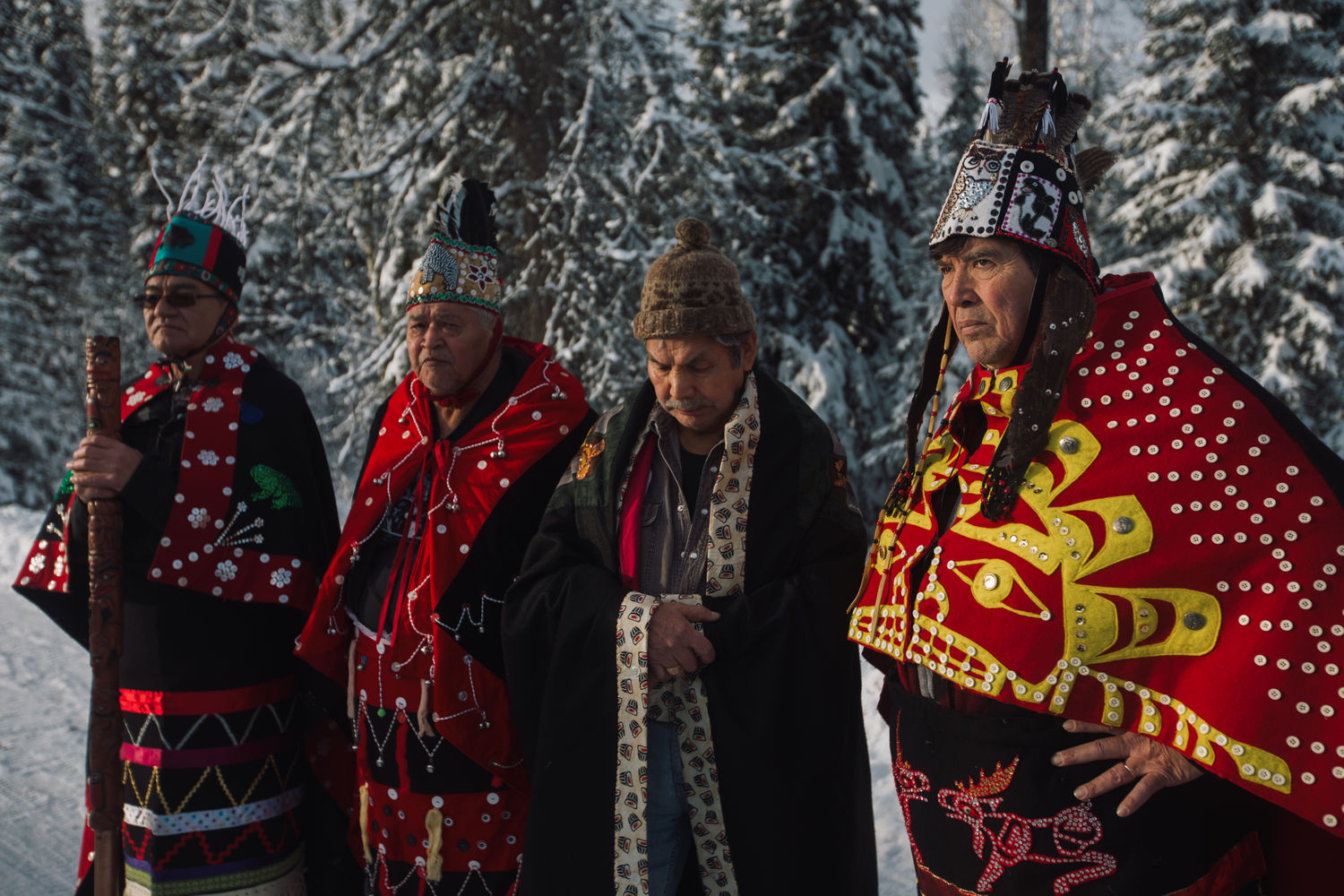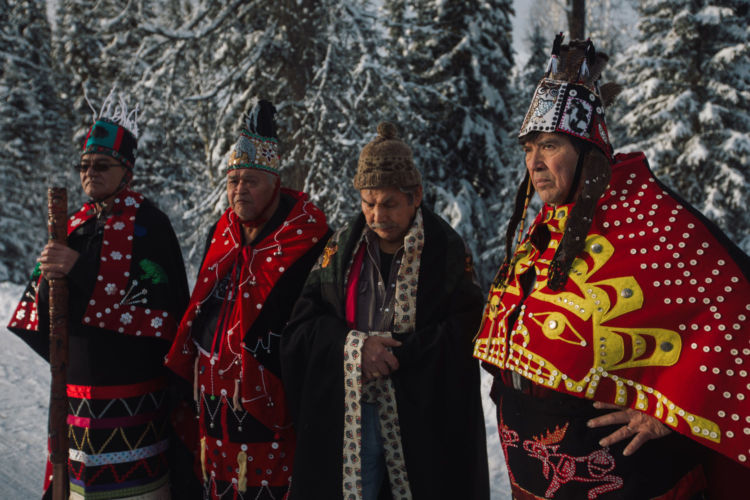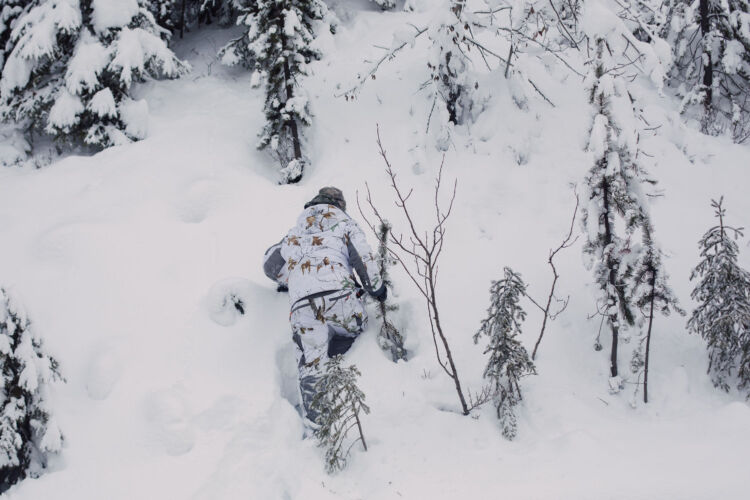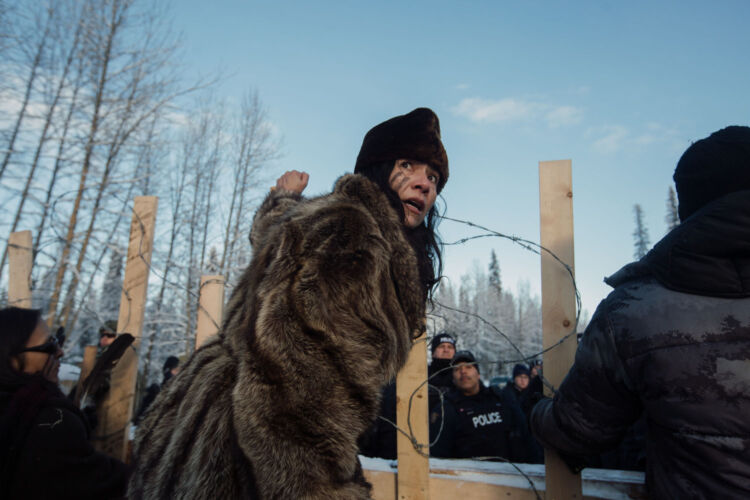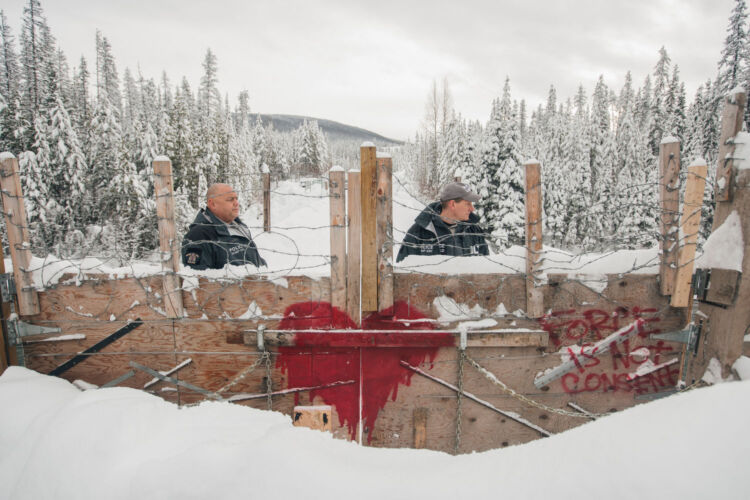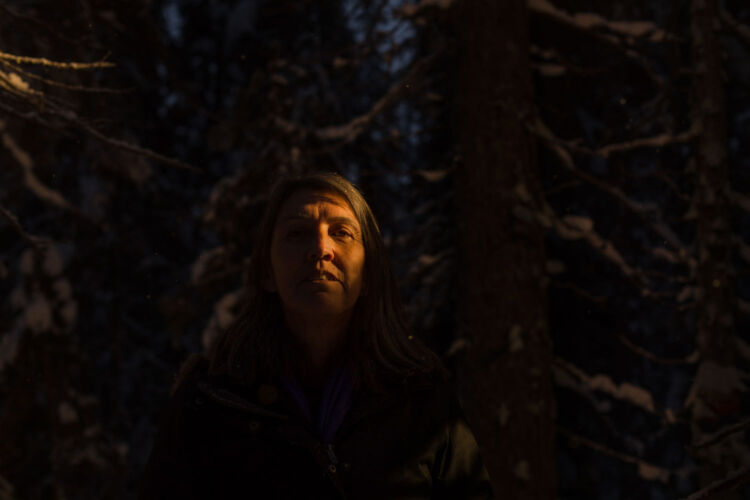project STATEMENT
For over a decade the Wet’suwet’en Nation has stood in defense of their last unspoiled territory. Their people have lived here, roughly 400 miles NW from Vancouver, for thousands of years and their entire culture is grounded in an intimate relationship with the land. Under intense police scrutiny, they have managed to peacefully stall Enbridge Northern Gateway Pipeline and the Chevron Pacific Trails Pipeline, companies intent on building oil pipelines on Wet’suwet’en land. A recent confrontation with the Coastal GasLink pipeline in 2019 resulted in fourteen arrests and a court-enforced removal of the iron gate protecting their land.
Media coverage of Indigenous groups standing up to extractive industry often approaches a stereotypical picture of the ecological noble savage. It would be easy for viewers to see the actions of the Wet’suwet’en’ as simply environmentalism. In reality, they are the continuation of a resistance against a brutal colonial history that has worked tirelessly to separate the Wet’suwet’en and other Indigenous people, from their land, their culture, and their right to choose how to live. Indeed, the intent of the camps is to defend the land the Wet’suwet’en depend on for food, spirituality, medicine, governance and identity, but it is also to assert their right to exist.
Though the Wet’suwet’en were forced onto reservations, they have never surrendered the rights to their ancestral lands–which total an area about the size of New Jersey–through treaty or any other means. Their lawful claim has been supported in court and they remain steadfastly, vocally opposed to development in the remaining 535 square miles of pristine forests and rivers that have not already become cities, farms, or absorbed by the real estate of industry.
Wet’suwet’en hereditary chiefs have repeatedly denied pipeline representatives consent to build on their lands. In response, the pipeline companies have approached cash-strapped towns on Wet’suwet’en reservations, offering monetary benefits in return for access to the land. Some of the reservation’s council members have signed agreements but they have reported being told the project would happen with or without their agreement. The chiefs and camps are calling for appropriate negotiations, including the right to say no.
One hundred fifty years after Canadian confederation, this photographic series challenges Eurocentric assumptions and asks: who ultimately has the right to decide the future of Wet’suwet’en land?


